The Tsinghua University School of Economics and Management (Tsinghua SEM) hosted its 2022 Undergraduate Opening Ceremony on August 18, 2022. The 244 undergraduate freshmen who make up the Class of 2026 attended the event both online and in person.
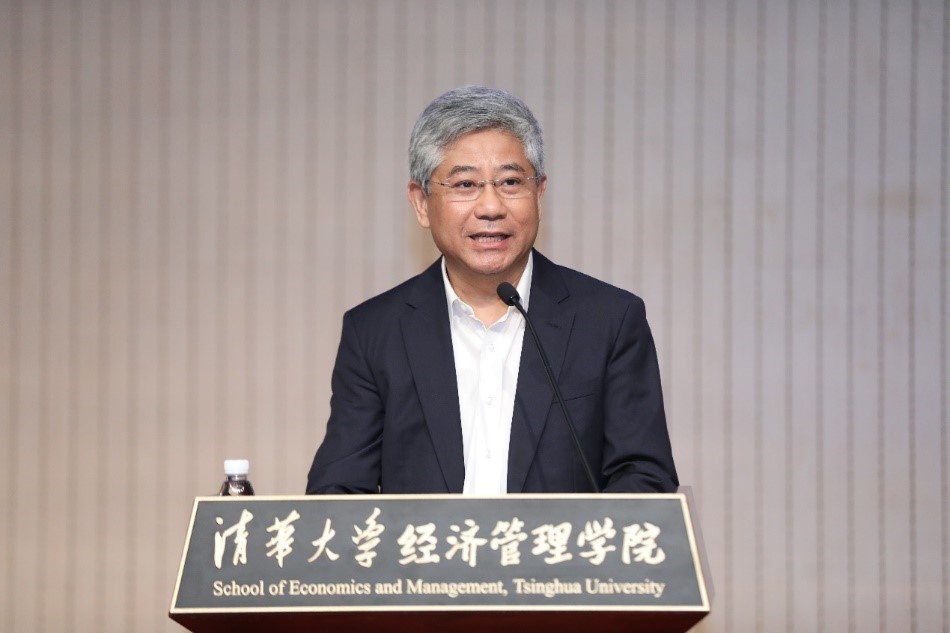
Dean BAI Chong-En delivers the opening speech.
The ceremony opened with Dean BAI Chong-En's welcoming remarks. BAI spoke about combining the tournament theory of economics with real life examples, probed into the concept of involution, and advised students about how to view and cope with it during their university years.
A previous survey of freshmen found that many students had difficulty adapting and managing internal friction, involution, and their pursuit of excellence, BAI said. Involution, in particular, becomes a problem when evaluations are based on relative rather than absolute indicators. He shared the "tournament theory" of economists Edward Lazear and Sherwin Rosen, first published in 1981, and introduced the reasons why relative indicators are needed (an absolute indicator is unavailable) and the positive aspects of this type of evaluation (it gives participants a sense of honor and motivation). BAI said even in this theory, evaluation by relative indicators cannot produce a positive inference without certain preconditions, such as the reasonable intrinsic value of the relative indicators. This is the cause of involution in education: if a less intrinsically valuable indicator becomes the gauge, or at least students believe it does (for example, putting the word count of paper before its quality), a negative "race to the bottom" rather than an elevating "race to the top" will result. At the same time, an evaluation index that focuses too much on individual performance will undermine teamwork, and thereby undermine academic growth. BAI said even though competitions and "races" are inevitable, students need to consider "what if I lose," because the long-term goal is more important than the short-term results that such competitions promote. Pointing to his own experience, BAI said he appreciated mathematical theorems in his youth and that study improved his taste in research: students' involvement in learning can itself be a pleasure and benefit beyond the short-term results of competition.
BAI said students should find their own positions within the group; choose a career that tracks with reasonable evaluation criteria and fits their personal interests and pursuits; set long-term goals; and focus on the value of the learning process. Long-term internal goals are more closely related to life pursuits than short-term external goals, and may include developing cognitive skills, improving aesthetic competence, and enhancing the ability of self-achievement or self-transcendence. "Our internal goals enable us to accept the 'race' results with an open mind," BAI said. He hoped the freshmen find their long-term inner goals as soon as possible; choose career tracks according to personal interests; avoid the temptation and distress of short-term external goals; and keep moving forward toward their life goals so as to "race to the very top of your life."
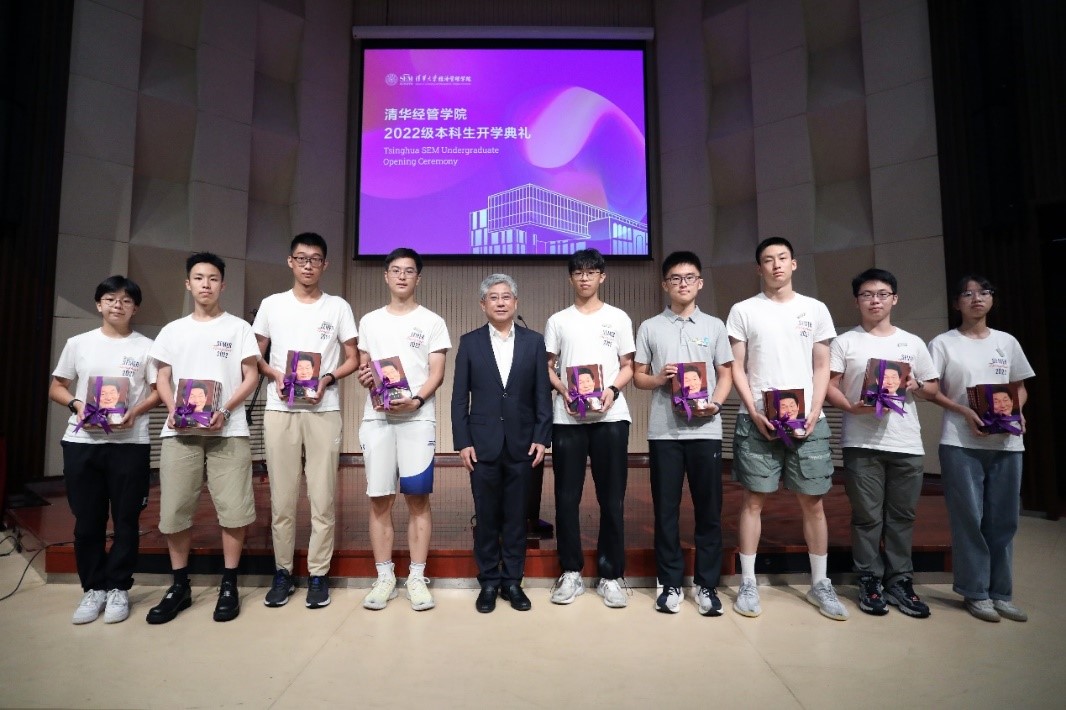
Dean BAI Chong-En presents copies of ZHU Rongii: On the Record to freshmen.
BAI then presented representatives of the freshmen class with the book ZHU Rongji: On the Record.
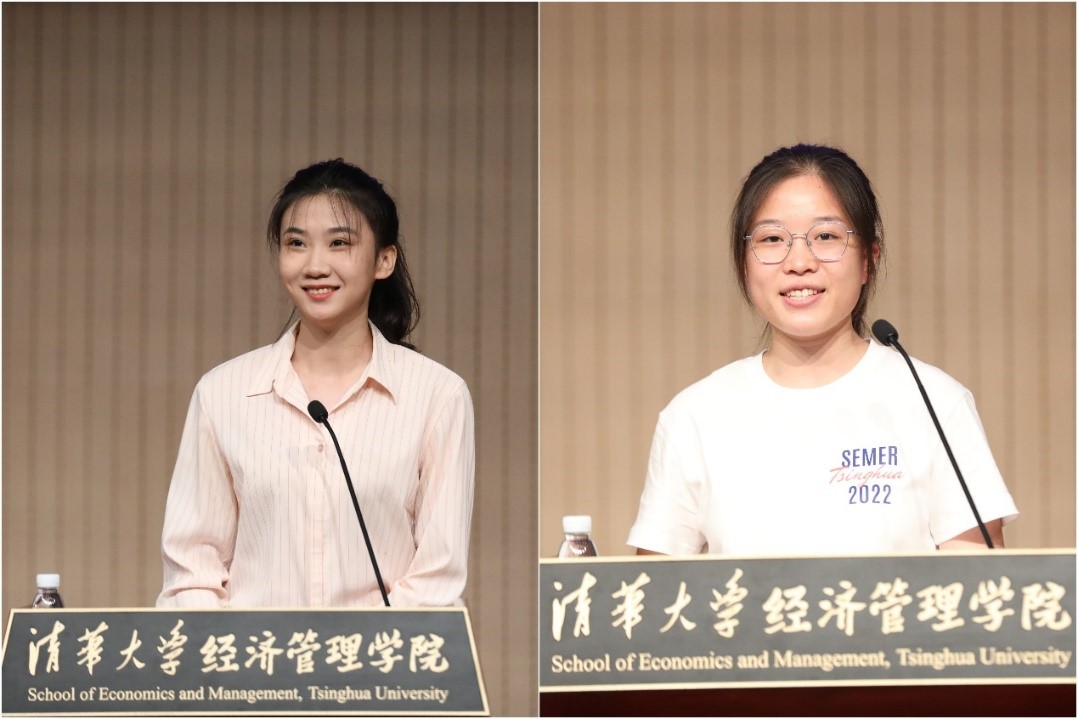
Speakers MA Jun (left) and HAN Yuyang (right)
As the representative of returning students, MA Jun, president of the 43rd Student Union of the school, shared her experiences of undergraduate life and offered three suggestions to the freshmen. First, "find a balance in college life." When faced with abundant opportunities, it's necessary to plan rationally, choose decisively, and find a balance between academic and non-academic activities. Second, "appreciate everyone from the heart". As a member of an outstanding community, one should learn from others to improve oneself instead of pressing oneself into competition. She also advised freshmen to appreciate themselves, be confident, and not be afraid of challenges. Third, "never forget the mission of our generation". As a witness of the times, students at Tsinghua SEM should be brave enough to meet new challenges, discover new opportunities, and shoulder responsibilities for the era.
HAN Yuyang spoke as the representative of freshmen. "Those who have a wider world at heart chase bigger dreams," she said, "Starting from zero, starting from today." Looking forward to the next four years of college life, she firmly announced her goal of staying true to her original aspirations and striving for the future.
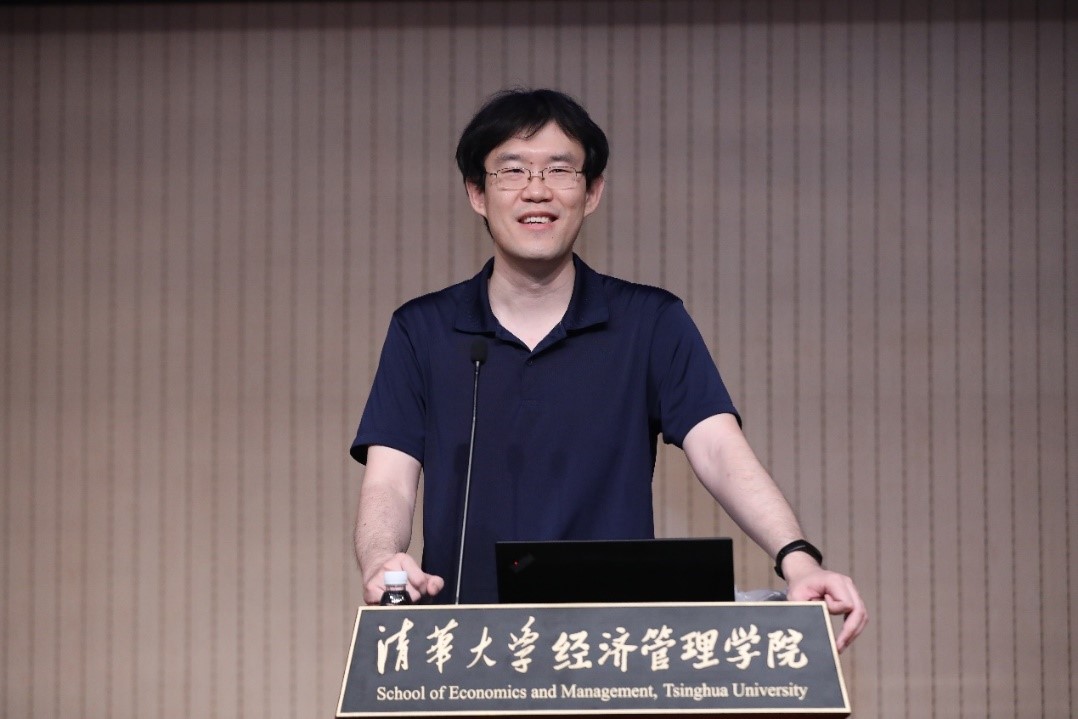
WU Xingye speaks at the ceremony.
The afternoon included freshmen orientation. WU Xingye, from the Department of Economics, spoke as the faculty representative and advised students on studies and exams; interpersonal relationships; competition; finding joy; and physical and mental health. He said university courses tend to blur knowledge boundaries, encourage innovative thinking, and emphasize solving practical problems. Students should adjust to university style as soon as possible by finding problems; adjusting in time; and being brave to communicate with their teachers. In terms of interpersonal relationships, he said he expected students to become "responsible for the people around them" and learn how to treat their relationships sincerely. He encouraged students to gain value from learning rather than a sense of honor, and to distinguish between hobbies with real benefits and mere recreational escape. He also reminded the students to value physical health, telling them to participate in sports, pay attention to mental health, and overcome negative emotions.
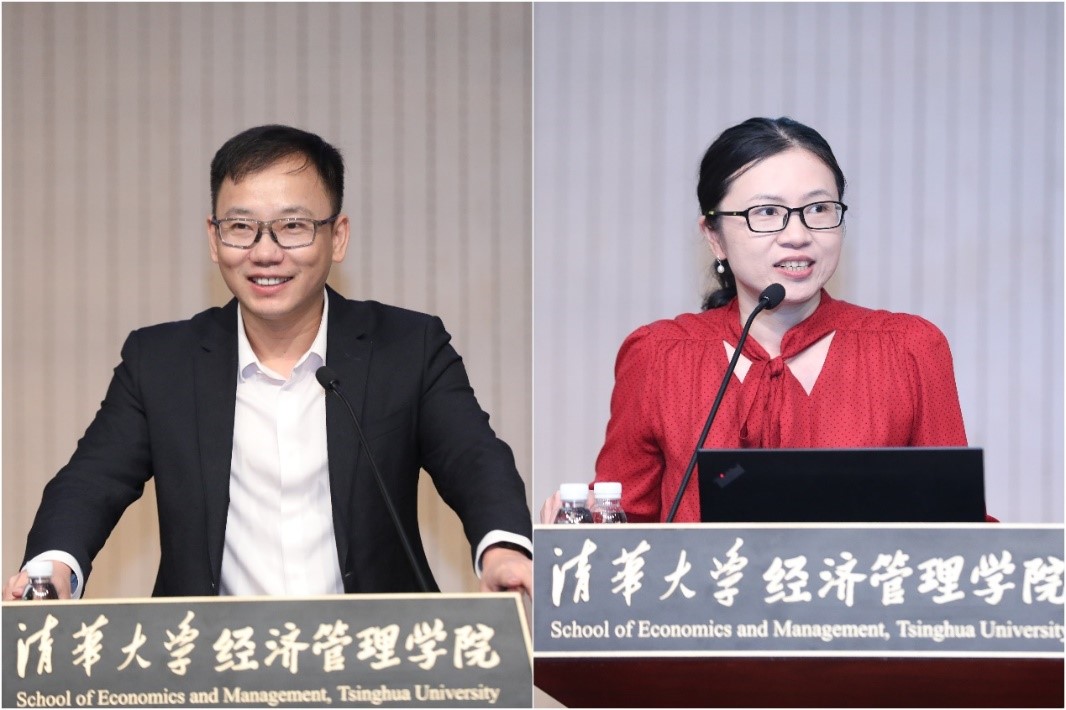
Speakers HE Ping (left) and ZHANG Chen (right)
Elaborating on his "tips for college life" and an "introduction to SEM's undergraduate education," Associate Dean HE Ping introduced the school's undergraduate majors and organizational structure. He explained the school's mission, vision, core values, and training programs, and encouraged students to cherish their college life. Assistant Dean ZHANG Chen introduced SEM's liberal arts education by explaining its philosophy and relevant misunderstandings. Based on historical reforms and current development, she summarized the goal of SEM's liberal arts education as "cultivating modern civilized people with good competence."
Editor: REN Zhongxi
 Latest News
Latest News